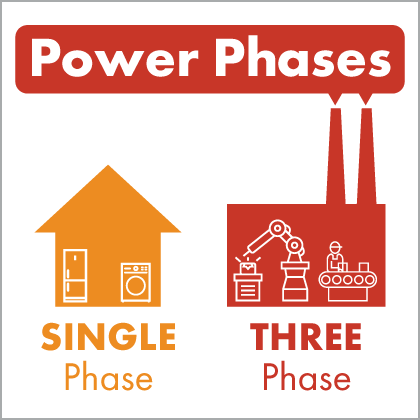What’s the Difference? Commercial/Industrial vs. Residential Electrical Contractors
Imagine the cost of one day without power at your business. Computers, lighting, assembly, and processing machines all shut down to a halt while your employees sit idle…doing nothing!
Aside from the obvious, hundreds – possibly thousands of dollars in productivity are lost as minutes fly by. Worse yet, YOU have the dubious honor of telling your customers that your business is temporarily closed and/or deadlines may not be met.
This was the case of one business owner who hired a residential electrician for what appeared to be minor electrical work at his office. The job went very well. Yet a few days later, inadequate fuses blew and took the power down. Although the business owner was able to get his company up and running within 24 hours, he was forced to hire another electrician—a commercial electrician—to completely redo what the previous electrician had done earlier. Bottom line: It was a very costly mistake on the part of the business owner.

Commercial/Industrial and residential electrical needs vary in several ways:
- Residential electricians specialize in residential properties that have high voltage systems (between 120 and 240 volts) and seldom have the experience or tools to handle the commercial/industrial electrical demands.
- Commercial and industrial properties have much higher energy needs, load demands, and equipment configurations that place a heavy demand on wiring. Therefore, commercial wiring is thicker and is usually contained heavy duty tube-like conduit.
- Wiring access is a must for commercial/industrial buildings for ease of repair and updates. Commercial/industrial electricians know how to properly install wiring to avoid having to damage walls when making repairs.
- Utility companies’ electrical loads are categorized by power phases to ensure that different types of properties avoid power overloads. Therefore, commercial/industrial properties which have complex electrical components, carry a heavy load and run large machinery are slated for three-phase power, as opposed to single-phase power for residential buildings which run small equipment.
The difference is great. The potential setbacks, costs, and danger in using inexperienced, untrained electricians who do not follow different procedures and is even greater.
There IS a difference.
Categories: Hints and Tips Date: September 2022

 815.455.2260
815.455.2260